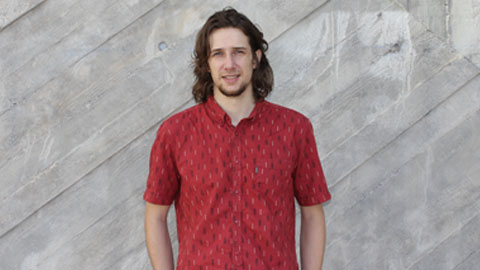Fèlix Klöckner, winner of the 3rd edition of TIC Laude for his CodeKey project
The idea of this UAB graduate in computer engineering has earned him first prize of the university's entrepreneurship programme Programa d’emprenedoria, organised by the Faculty of Communication Studies and the UAB Research Park. CodeKey acts as a “master key” which adapts to any type of access device.

As happens with most young entrepreneurs, Fèlix had an idea, but the question he kept asking himself was “so, now how do I do it?”. And that is why he enrolled in the entrepreneur course TicLaude, organised by the Faculty of Communication Studies in collaboration with the UAB Research Park. “TicLaude helped me put on paper all the unorganised ideas I had in my head, but participating in the course also helped to see if my ideas were interesting to the rest or not”, Fèlix explains.
CodeKey aims to be a master key for all those access devices we use each day. According to Fèlix, all companies created their own entry devices (locks) with closed access keys and, in the end, we find ourselves with a different device for each apparatus. His idea is to commercialise one single portable detector from which to synchronise all access codes of the different devices we use each day. For example, users would own a personalised bracelet or key chain which they could use to get into the office, turn on their computer or activate their transponder. In addition, “the device will have a detection radius of 1.5 metres and therefore there's no need to look for it; it's enough if you carry it with you”, Fèlix remarks.
The prototype is already programmed with a few basic functions which, according to its inventor, demonstrate just how useful this invention can be. The device can be used to block a mobile phone. When the owner is close to the phone, the phone works. But once the owner moves away from the phone, it becomes blocked and a much stronger password than those normally used is needed to unblock it. Fèlix also programmed a second application consisting of automatically turning on and off a computer when it detects or stops detecting the CodeKey.
The next step will be to formalise the company once the viability of the prototype being developed is guaranteed. “Little by little, since at first I made mistakes because I wanted everything to happen quickly. Before taking the step and creating my own business, I think it's important to know how the business world works”, Fèlix states, and adds that for him, one of the most interesting things gained through professional experience is to learn to apply the knowledge acquired at university.